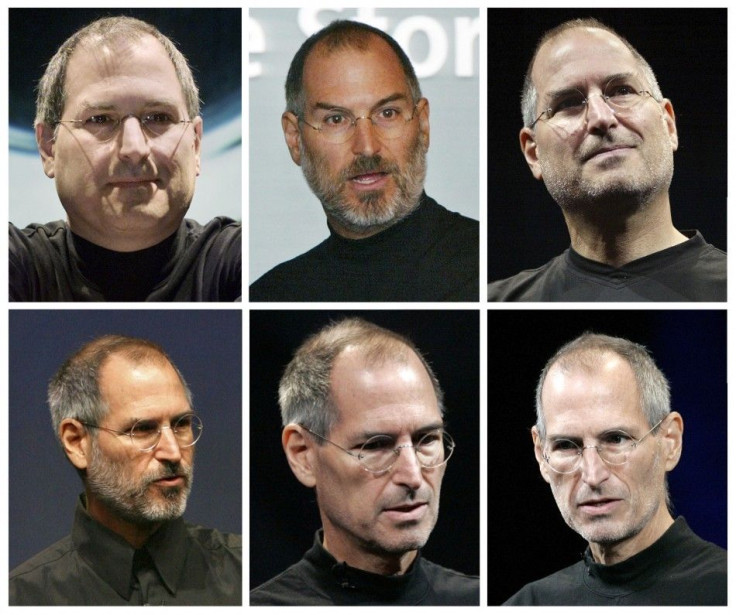Steve Jobs Dies: A Celebrity Death Like No Other
OPINION

The death of Steve Jobs was neither sudden nor especially unexpected -- however, his passing may have elicited a reaction that is unprecedented in my lifetime.
Jobs was (purely by virtue of his huge success, wealth and massive influence on the global economy) a ‘celebrity.’ However, unlike most famous people, the former Apple founder was (as I have ascertained) universally admired around the world – even among those who (like me) are not tech-obsessed.
Moreover, the field of science and technology is almost a pure meritocracy – the only prerequisites to success and achievement are hard work, intelligence and creativity. Such factors as birthright, looks, physical strength are completely irrelevant.
Thus, Jobs’ fame was totally deserved, celebrated -- based on him having created products that are hugely practical and useful. There was no ‘luck’ or ‘circumstance’ involved at all (well, not much).
Our celebrity tabloid culture is fuelled largely by the exploitation of the foibles and peccadilloes of the rich and famous (which inadvertently means that most celebs remain in the public eye as long as they engage in scandalous, outrageous behavior). Tabloids don’t really care much about intelligence, talent and social impact.
I’m certainly not saying Jobs was ‘perfect’ (reportedly, he was an eccentric, erratic manager and also fathered a child out of wedlock that he refused to acknowledge). Nonetheless, if one scours the blogs and the internet, Jobs is almost universally beloved and respected because of the devices he introduced to the world.
What other celebrity can boast such acclaim? I can’t think of any.
In this day and age when the internet is replete with filth and scurrilous material on every subject under the sun, Jobs’ widespread admiration is practically incredible. Moreover, given the public’s enormous antipathy against Wall Street and the corporate executive class, the love people had for Jobs is downright surreal.
I recall when John Lennon died. I was a teenager then and his murder was utterly shocking, disturbing and shattering. However, despite his enormous fame, Lennon had been out of the public eye for about five years (although he had just released a new album). He had lost much of his relevance and currency. Moreover, he was not universally beloved -- many observers commented negatively about the fact that he was addicted to drugs, often treated people cruelly and led a rather dissolute life (he was, after all, a wealthy rock star).
When Mother Teresa died in the late 1990s, she was, of course, almost universally admired – but she was an elderly woman and hardly had the ‘glamour’ that would have made her tabloid-worthy. (Let’s face it, nuns don’t excite anybody)
Princess Diana was clearly a glamorous and beautiful figure – but what did she actually accomplish in her life? Although her untimely death was obviously tragic, she was basically a ‘pretty face’ who married (apparently against her will) into royalty. Her death in a car crash in Paris prompted waves of sorrow -- however, these memorials were dampened by the subsequent revelations of her scandalous life as well.
Indeed, when a highly polarizing figure dies, the condemnation can be fierce and unyielding. I recall when Senator Jesse Helms died in the summer of 2008, the public’s reactions were, at best, muted, at worst, filled with vitriol and hate. Many people actually “cheered” Helms’ passing.
Even in the rarefied atmosphere of tech royalty, Jobs stands out.
When Bill Gates of Microsoft dies, will he be remembered so well? I would tend to doubt it. Despite the billions he has handed out to charity through his foundation, Gates has many enemies and detractors, partly owing to his prickly personality and some allegedly questionable business practices.
Perhaps the one man in the corporate business world who approaches Jobs’ popularity is Berkshire-Hathaway chairman, Warren Buffett. The Oracle of Omaha is largely scandal-free, respected for his investing acumen and widely admired for his unpretentious, low-key style.
However, Buffett is 80 years old, has already lived a full life and (unlike Jobs) did not create any tangible, revolutionary products.
It is doubtful we well ever witness a phenomenon like Steve Jobs ever again.
© Copyright IBTimes 2024. All rights reserved.





















